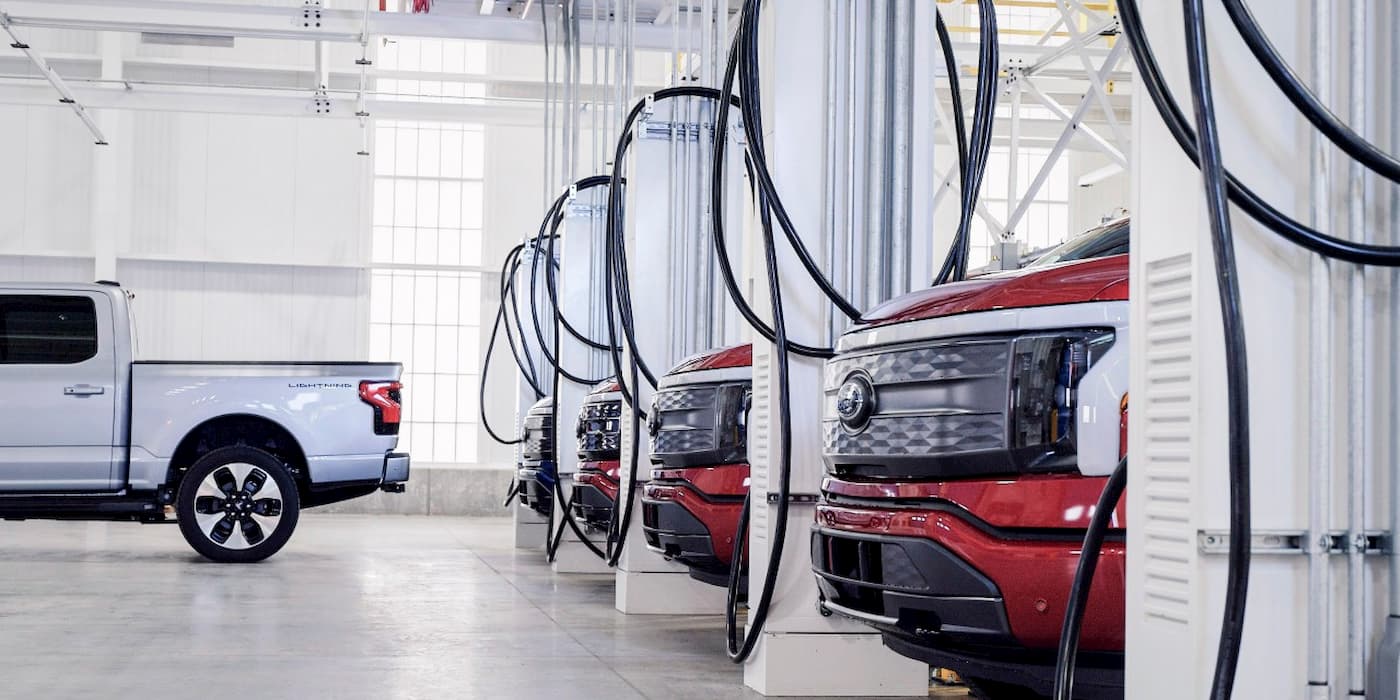
A strong majority of car dealers complain the US government’s strategy is bringing them too fast into the electric vehicle future.
It’s awkward to be dragged kicking and screaming into a future that’s already here. Especially because if you don’t do it, you will be irrelevant.
Car dealers have long been seen as a potential obstacle to EV adoption partly because their profits rely greatly on servicing vehicles with repairs as well as maintenance like oil changes.
EVs have fewer moving parts that can break and they obviously don’t require oil changes.
That’s partly why new automakers who solely focused on EVs, like Tesla, Rivian, and Lucid, decided to bypass the third-party franchise dealer model and sell and service vehicles directly to customers – cutting the middleman.
The concerns about dealers have proved warranted. Not only have automakers had issues making their dealers sell EVs, dealers have also lobbied to lower regulations accelerating EV adoption.
Now a new survey of 208 dealers and dealership managers by Automotive News confirmed that they don’t have favorable opinion of EVs and how it plays into their business.
83 percent of the dealers surveyed said that they believe the federal government is pushing them into EVs too fast.
55 percent believe that “EVs aren’t generating customer interest or sales at their stores, with some citing affordability concerns or a lack of inventory.”
Ironically, 4,000 car dealerships wrote the White House last year complaining that they had too many EVs in inventory.
Which one is it? There are too many EVs that you can’t sell or not enough inventory?
Michael Lucki, general manager of car dealer in New York, believes consumer demand for EVs is not there yet:
“Electric vehicles are exciting. They’re definitely overall a good impact for our customers and for the environment, but it’s moving too fast. It should be driven by consumer demand, and consumer demand isn’t there yet.”
You want to hear something funny? Mister Lucki feels that there’s no demand for EVs and I’m sure it has nothing to with the fact that he works for Riverhead Mazda. The Japanese automaker doesn’t sell any all-electric vehicles in the US.
On the more practical side, only 35% of dealers believed that the new point-of-sale tax credit for electric vehicles was going to help their business. The rest feels like it’s going to be negative, will have no impact, or are unsure.
Electrek’s Take
There’s no demand for EVs, but the best selling car in the world is electric. Try to reconcile that. I can’t.
Now, when trash-talking dealers, I always want to make it clear that even though I’m not a fan of the third-party car dealer model, I know there are plenty of good car dealerships.
But it does feel like as a whole, they are more of an obstacle to EV adoption than an helping hand.
Automakers who rely on them to distribute and service their vehicles are going to have to figure that out if they want to survive the electric revolution.
FTC: We use income earning auto affiliate links. More.

